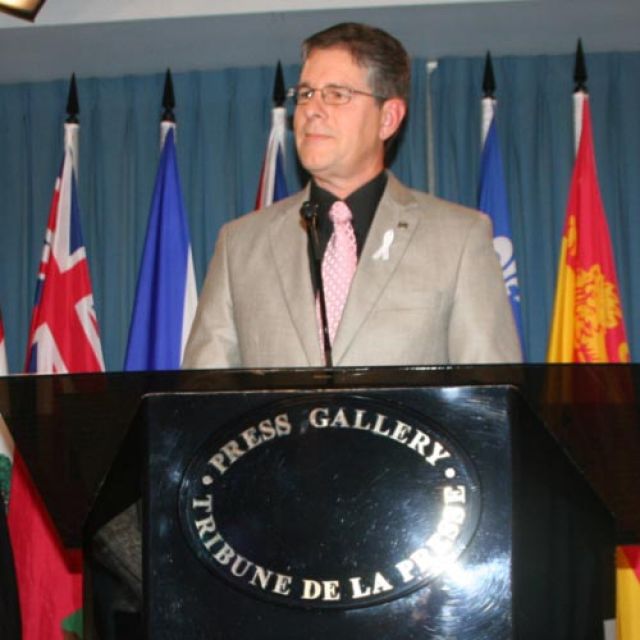The issue leapt from specialty newspapers and web sites to the mainstream media throughout 2012, despite continued attempts by the Conservative government to shut it down. The National March for Life was larger than ever, with organizers counting nearly 20,000 participants, among them many Catholic bishops and MPs.
The year kicked off with backbencher Conservative MP Stephen Woodworth’s announcement he was considering a way to have Parliament study the 400-year old definition of a human being in the Criminal Code. His Motion-312 became the subject of a social media campaign, many petitions and letters and garnered much news coverage. Though Motion-312 was defeated Sept. 26, 87 Conservative MPs supported it, including 10 cabinet ministers.
Another Conservative MP, Mark Warawa, has subsequently introduced a motion against the gendercide of girls through sex-selection pregnancy termination. It calls for Parliament to condemn the practice which has skewed ratios of men to women in countries like China and India, and is happening in Canada among immigrant families.
Though Warawa insists Motion-408 is not about abortion, Opposition parties have called it a backdoor to criminalization of abortion.
Religious freedom and parental rights as first educators were in the news as court decisions involving Quebec’s mandatory Ethics and Religious Culture (ERC) program were handed down this year and Ontario brought in its anti-bullying Bill 13 in June.
In February, the Supreme Court of Canada ruled on case of Drummondville, Que., parents, who sought to have their children exempted from the ERC, which they said risked harming their children’s Catholic faith. The court ruled the parents had not sufficiently proven the ERC was harmful.
In the spring, the Canadian Conference of Catholic Bishops’ Permanent Council issued a prophetic pastoral letter highlighting concerns about religious freedom both at home and abroad and providing theological and moral perspectives for Catholics to engage in protecting both religious freedom and conscience rights.
The passage of Ontario’s anti-bullying Bill 13 imposes Gay-Straight Alliances on the publicly funded Catholic school system. The Ontario Catholic School Trustees Association offered a Catholic response to bullying in its Respecting Difference document earlier in the year. As well, the Canadian bishops' doctrine commission issued a timely reflection in the pastoral letter to young people with same-sex attraction published in the spring that explained Church’s compassionate teaching on this issue.
In December, the Quebec Court of Appeal delivered decision in the case of Loyola High School, a private Catholic school in Montreal that ordered the school to teach the ERC from a “neutral” perspective. The school had offered a world religions and ethics program taught from the Catholic standpoint. The plaintiffs had won at the lower court level, but an appeal court overturned that decision and reinstated the Education Minister’s determination Loyola’s course was not equivalent. Experts say the decision flies against the right of a Catholic institution to be Catholic.
The federal government's Office of Religious Freedom promised in the last federal election remains to be launched officially with the naming of someone to head the office. There is still no date set for the launch.
Euthanasia also loomed over the national scene, with a Quebec Dying with Dignity commission recommending earlier in the year a loosening of provincial rules regarding euthanasia and assisted suicide, treating the matter as a health issue under provincial jurisdiction rather than a Criminal Code matter.
The Quebec bishops, the grassroots group Living with Dignity and the Catholic Organization for Life and Family reacted vigourously against these recommendations. The Quebec Liberal government went down to defeat last summer, but the Parti Quebecois was also in favour of this report. Grassroots efforts continue in the province with the rise of a physicians' group opposed to euthanasia.
Perhaps the biggest blow to efforts to protect the elderly, sick and disabled came in June’s Carter decision by the British Columbia Supreme Court striking down the Criminal Code provisions against assisted suicide on grounds it is discriminatory, under the Charter, against disabled people who are physically unable to kill themselves. The Euthanasia Prevention Coalition, the Christian Legal Fellowship and the Evangelical Fellowship of Canada are among the groups granted intervener status for when this case is heard by the B.C. Court of Appeal.
Social justice took a beating in 2012 with the announcement earlier in the year the Canadian Catholic Organization for Development and Peace would receive a 65-per-cent reduction in CIDA funding for its next five-year plan. The Conservative government has taken a new approach to overseas development, with a shift towards economic development and job creation, private-public co-operation and enlisting the help of Canada’s mining and extractive industry sector.
Domestically, poverty reduction is also trending towards private-public partnerships and finding new ways of reducing the numbers of poor people, especially poor children, in Canada, without necessarily an increase in government spending. In June, the All-Party Anti-Poverty Caucus launched on Parliament Hill, bringing MPs and Senators together to promote non-partisan approaches.
Fiscal restraint has not only affected governments and NGOs, but also the Canadian bishops' conference which has undergone some significant belt-tightening and staff reduction and reorganization that began in 2011 and continued over 2012. The bishops eliminated its in-house CCCB Publications and outsourced its work in this area to St. Joseph’s Publishing. About 18 positions have been eliminated, including that of the senior social justice advisor. The bishops' conference is taking a streamlined, team-oriented approach to serving its various episcopal commissions.

